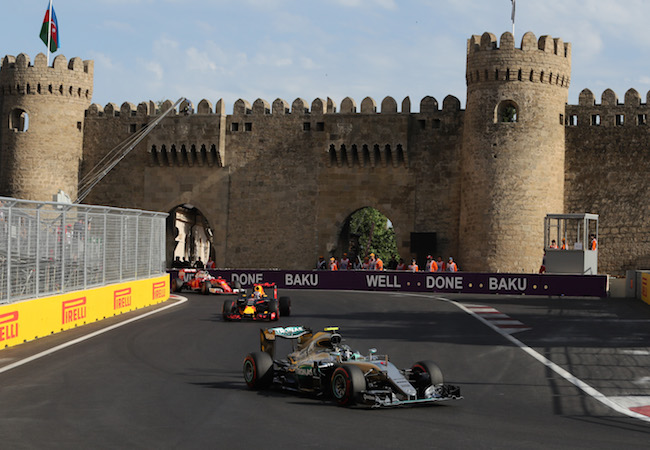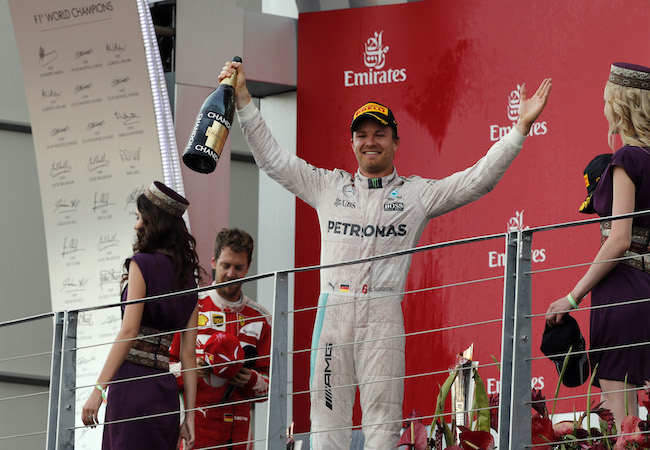
By Justin Farrell
Last weekend thousands cheered for their favorites as F1’s fast cars buzzed through the streets of downtown Baku. Situated on the coast of the Caspian Sea in the heart of Eurasia, Baku – the capital of Azerbaijan – propelled another mega project to draw the world’s attention to this unique historical city.
By the end of the race, Germany’s Nico Rosberg took the title after securing his lead over Ferrari’s Sebastian Vettel and Sergio Perez of Mexico (Force India) who came in third. It was Rosberg’s 19th career victory.
The European Grand Prix, a classy Formula 1 event, was inaugurated on June 19. Azerbaijan’s authorities hosting the event took over from Valencia, Spain that held the GP in 2012. Dubbed ‘Baku City Circuit’, the circuit runs for a little over 6 km (3.73 mi) which is considered one of the longest tracks. Apart from running alongside the seaside promenade and main avenues in downtown Baku, the circuit also encircles Baku’s Old City, a UNESCO Heritage site that dates back to the 12th century. While many had expressed mixed feelings about the risks of crashing the cars into walls of the city, others were excited about the prospect to pass by edifices that once guarded the people of Baku from invaders.
In the last several years, Baku had strengthened its image of a cosmopolitan hub where European and Oriental values intersect by investing billions of dollars in the infrastructure of the rapidly growing city. Fueled by the oil revenues Azerbaijan got from its West-oriented energy projects, residential and commercial high-rises mushroomed. The authorities also heavily invested in modern architectural outlook of the city. Case in point, the carpet museum in Baku’s seaside promenade that looks like a rolled carpet, symbolizing one of the national treasures of the country – the Azerbaijani carpets. Another unique architectural wonder is the Heydar Aliyev Cultural Center designed by the late Zaha Hadid. Yet, perhaps, the most eye-catching high-rise complex is the so-called Flame Towers, the three buildings in the shape of three flames overlooking the entire city and that are home to Fairmont Hotel.

These endeavors have then been supplemented by holding world class events. In 2012 Baku hosted the Eurovision contest, one of the mostly watched events in Europe. Last year, the government also held the inaugural European Games where 6,000 athletes competed in dozens of sports.
European GP is yet another project intending to bring fame to Azerbaijan. Nearly 550 million people reportedly watched the race last weekend. This puts Baku in the spotlight for those who are adventurous enough to explore unknown places beyond Europe’s geographical boundaries. The authorities in Azerbaijan hope precisely for that. Tourism is an area Azerbaijan wants to capitalize on and these events are the primary channel for live advertisement of the country’s potential.
The Baku City Circuit was certainly a fusion of Eurasian history, modern architecture and luxurious sports. Azerbaijan’s commitment to hold the event for five consecutive years is destined to redefine the post-Soviet republic in its quest to become part of Europe.




